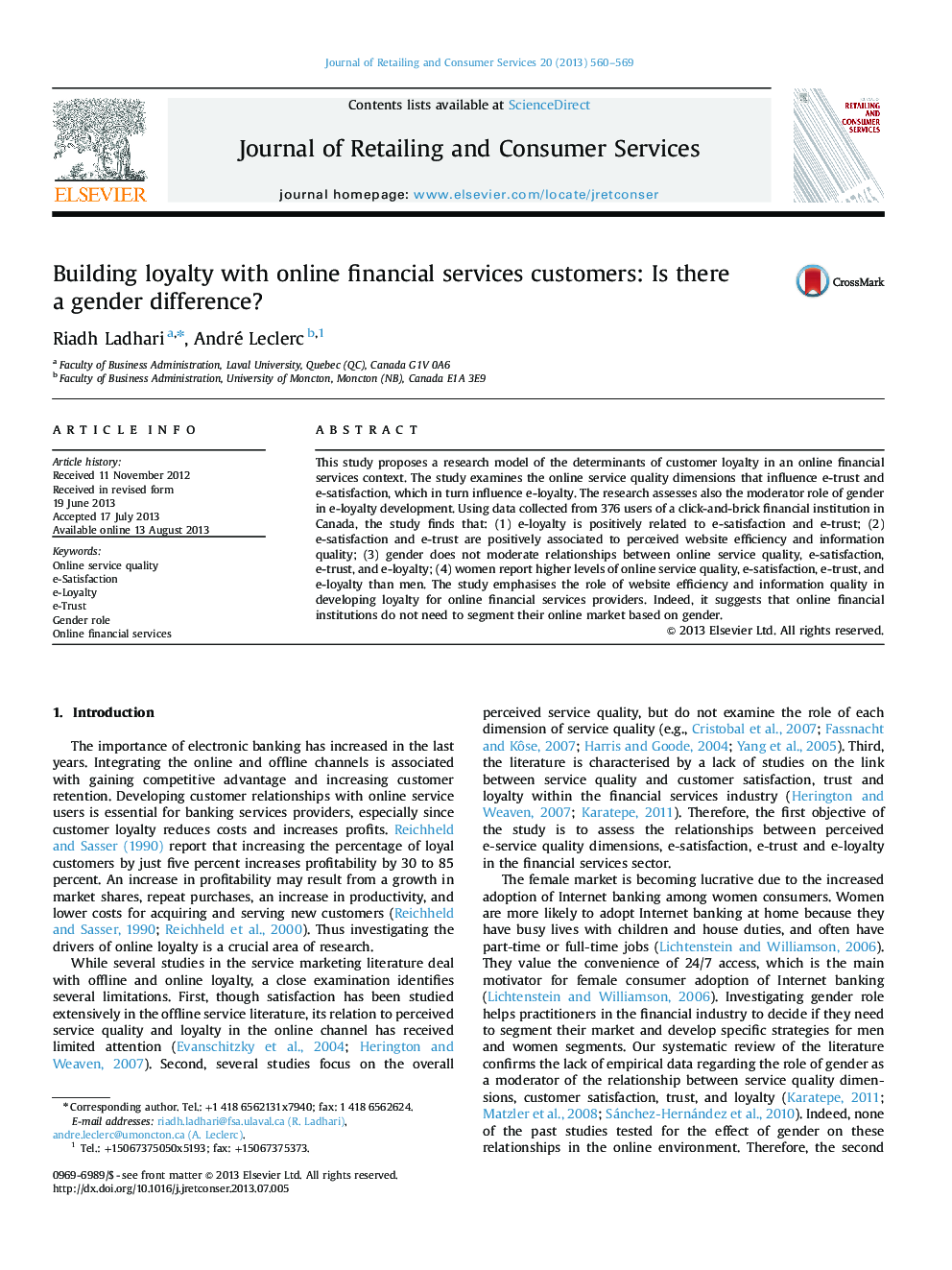| Article ID | Journal | Published Year | Pages | File Type |
|---|---|---|---|---|
| 1028917 | Journal of Retailing and Consumer Services | 2013 | 10 Pages |
•E-loyalty is related to e-satisfaction and e-trust.•E-satisfaction and e-trust are related to perceived website efficiency and information quality.•Gender does not moderate relationships between online service quality, e-satisfaction, e-trust, and e-loyalty.•Women report higher levels of online service quality, e-satisfaction, e-trust, and e-loyalty than men.
This study proposes a research model of the determinants of customer loyalty in an online financial services context. The study examines the online service quality dimensions that influence e-trust and e-satisfaction, which in turn influence e-loyalty. The research assesses also the moderator role of gender in e-loyalty development. Using data collected from 376 users of a click-and-brick financial institution in Canada, the study finds that: (1) e-loyalty is positively related to e-satisfaction and e-trust; (2) e-satisfaction and e-trust are positively associated to perceived website efficiency and information quality; (3) gender does not moderate relationships between online service quality, e-satisfaction, e-trust, and e-loyalty; (4) women report higher levels of online service quality, e-satisfaction, e-trust, and e-loyalty than men. The study emphasises the role of website efficiency and information quality in developing loyalty for online financial services providers. Indeed, it suggests that online financial institutions do not need to segment their online market based on gender.
